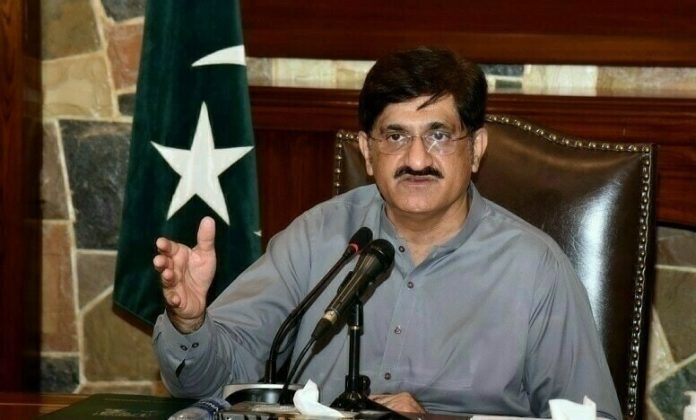From Zeeshan Mirza
KARACHI: The Sindh Assembly on Thursday unanimously adopted a strongly worded resolution rejecting the Indian defence minister’s remarks about Sindh, condemning them as inflammatory, revisionist and a deliberate distortion of history.
The text of the resolution “unequivocally condemns” the statement as delusional and asserts that Sindh “is, and will forever remain, an inseparable part of Pakistan,” calling on Islamabad to pursue diplomatic and legal measures internationally.
The resolution, moved by PPP lawmaker Mukesh Chawla, also rejects “revisionist and expansionist claims emanating from India,” accuses the Modi government of extremist policies that “threaten regional peace,” and warns that New Delhi is attempting to weaponise water resources and endanger environmental security.
It further urges the federal government to protect Pakistan’s Indus water rights and hold India accountable for treaty and environmental violations. The document also expresses solidarity with communities “within Pakistan and across India” who reject extremism and uphold coexistence and peace.
Sindh Chief Minister Murad Ali Shah said that India’s defence minister had given a “highly condemnable impression.” He added: “The resolution we have presented narrates the entire history,” noting that Sindh existed “long before the pre-BC era.”
“This is not about 1947 or the British period,” he told the House, adding that ancient Sindh historically extended to Multan and Makran. “Our elders’ sacrifices created Pakistan. We are all sitting here because we helped build this country.”
CM Murad criticised the Indian minister personally, remarking that he “has never drunk the water of the Indus, which is why his mind is unsettled.” He said those who drink from the Indus “cannot betray this land,” adding that India’s “panic began after May [war].”
Jamaat-e-Islami MPA Muhammad Farooq said the Indian minister had spoken “out of frustration and isolation,” adding: “India destroyed its own aircraft industry. At air shows, your planes fall from the sky.” He reminded the House that Pakistan’s Resolution was first tabled in the Sindh Assembly, saying: “India should worry about itself, not us.”
MQM-P MPA Abdul Waseem said India now had “nothing left to do” and should “stop dreaming.” He warned that such statements only “increase regional tensions,” adding: “We saw what happened to you in May.” He condemned the remarks “in the strongest terms.”
Education Minister Syed Sardar Shah dismissed the Indian defence minister’s knowledge of history: “He knows nothing. Rajasthan and Amritsar were historically parts of Sindh — we could make that claim, not India.”
He added that Kashmir too was historically aligned with Pakistan, saying India was “point-scoring over its failures and weak defence system.”
Minister Saeed Ghani said Pakistan’s armed forces and people had “always faced India with courage,” adding: “India may have a larger army and economy, but it cannot match Pakistan in battle.”
He said Prime Minister Narendra Modi lacked the courage to even brief his own nation on war matters, predicting: “In the future, India will break into several pieces.”
“Pakistan is one,” Ghani concluded. “Sindh is part of Pakistan and will always remain so.”
The debate followed Indian media reports quoting Defence Minister Rajnath Singh as saying that Sindh, while not currently part of India, remained part of India “civilisationally,” and that “borders can change … who knows, tomorrow Sindh may return to India again.”
Singh also claimed that many Sindhi Hindus of his generation had never accepted the province’s accession to Pakistan.




